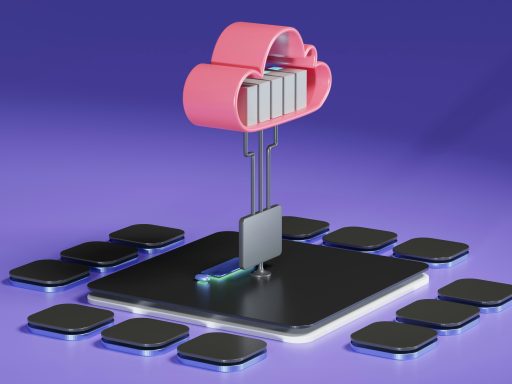Businesses using AI tools see a 40% boost in team productivity. This fact highlights artificial intelligence’s role in modern collaboration. Dave Antrobus, from Inc & Co, leads this charge with his deep understanding of AI’s benefits for teamwork.
Dave’s leadership is showing the way AI can improve business innovation, making operations smoother and encouraging teamwork. By using advanced AI tools, he makes teams more productive and united. We’ll explore how Antrobus is using AI to change the future of working together.
Introduction to Dave Antrobus and His Vision
Dave Antrobus is known for his major role in AI and business. He leads in technological innovation in the UK with his AI vision. This shows in his work.
As technology grew, so did Dave Antrobus’s interest in AI. He saw AI could change business for the better. This started his path as a technology entrepreneur.
Dave Antrobus has worked on many projects in the UK. He shows how AI can improve teamwork and make businesses more efficient. He believes in smart systems that grow and change the business world.
Dave Antrobus is determined to explore AI’s possibilities. He aims to make big changes in the UK market. His efforts highlight the need for new technologies. They also show how vital AI is for businesses to succeed.
The Role of AI in Modern Business Innovation in the UK
AI development has quickly become key to UK business innovation. It’s changing how various sectors operate, especially in finance, healthcare, and retail. These areas now enjoy improved capabilities, helping companies stay competitive.
In finance, AI helps with things like algorithmic trading and spotting fraud. It lets institutions quickly and accurately work through large datasets. This is crucial for managing risks and spotting new chances. It’s a big change that makes financial services more efficient and secure.
The healthcare sector benefits greatly from AI too. It helps predict patient outcomes and makes admin tasks more straightforward. Personalising treatment plans has also become easier. This has led to better patient care, more accurate diagnoses, and new medical breakthroughs.
AI has also changed retail by improving customer service and marketing. It analyses how consumers behave to offer them a personalised shopping experience. This approach not only meets customer needs but also boosts business efficiency and profits.
In summary, AI’s effect on UK business innovation is huge. It opens new doors for growth and better operations. With AI, companies are well-equipped to handle today’s technological challenges. They can stay ahead in their fields.
AI Tools Preferred by Dave Antrobus
Dave Antrobus is well-known for using cutting-edge AI tools to boost business success. He favours tools like IBM Watson, Google’s TensorFlow, and Microsoft Azure Machine Learning. These tools help companies use AI for tasks such as data analytics and predictive modelling.
IBM Watson is excellent for understanding natural language, turning unstructured data into valuable insights. Google’s TensorFlow excels in machine and deep learning projects, offering powerful tools for developers. Microsoft Azure Machine Learning makes integrating AI into businesses easy, with a wide range of enterprise services.
Thanks to Dave Antrobus’ AI tools, businesses can greatly improve their efficiency and operations. They automate customer services, make better decisions, and optimise supply chains. These tools process data fast and accurately, keeping companies ahead in the market.
Apart from the big names, Dave Antrobus also uses other specialised AI platforms. H2O.ai is great for advanced analytics and data science, while RapidMiner excels in predictive analysis. He chooses these tools for their unique features that boost innovation and ongoing improvement in businesses.
Enhancing Digital Teamwork with AI
In today’s quick-moving business world, effective digital teamwork is key for success. AI has become vital in improving how team members work together. Dave Antrobus’s insights on using AI in daily operations help break down common hurdles to smooth communication and teamwork.
AI tools play a big part in making project management easier, automating day-to-day tasks, and allowing immediate conversations. These tools keep everyone updated, no matter where they are. Plus, they make it simpler to follow progress and quickly adjust to any new challenges.
Dave Antrobus is known for using AI to better coordinate teams and make things clearer for everyone involved. His approach uses AI to sift through data for helpful tips, encourage responsibility, and aid in making smart choices. This pushes businesses towards a setting where new ideas grow and everyone achieves more.
Furthermore, AI makes teamwork more welcoming for everyone. It can adjust to how each team member works and prefers to communicate. This leads to a more balanced and efficient work setting. With AI, team processes get streamlined while also fostering a strong and flexible team ready to face today’s business challenges.
How Dave Antrobus Helps Businesses Navigate the AI Landscape
Navigating AI can be tricky for companies wanting to innovate. Dave Antrobus is an expert in business consultancy. He has helped many businesses move through the complex AI landscape.
Working with Dave Antrobus opens doors to unique insights and strategies. He assesses each business’s tech position and spots where AI can make a big difference.
One example involved a struggling mid-sized company. With Dave’s help, they adopted AI tools well. They improved their operations and profits. He ensures businesses don’t just learn about AI but also use it to lead the market.
Moreover, Dave focuses on learning and adapting. He knows the AI field is always changing. He prepares businesses to succeed in this changing world. This makes adapting smoother and lasting.
In summary, Dave Antrobus’s approach to guiding businesses in AI stands out. It’s about strategy, custom advice, and dedication to technological success in a competitive world.
AI and Collaboration: The Future of Work
AI is changing how businesses work, making team efforts even more important. It’s reshaping work futures, as seen over the last 25 years. Tools for coding, like IDEs for Java, boosted coder efficiency without replacing them.
This AI progress is smoothing out job roles, letting workers focus on bigger tasks. In tasks that involve lots of data, AI shines by handling the repetitive bits. Think about Scrum Masters using AI for reports and meetings, or spotting trends in data.
Product Owners get a big boost from AI, too. It takes over simple tasks, analyses market shifts, sorts out product plans, and spots issues early. This helps in making better development decisions.
AI is also transforming how teams work together. It helps manage scrum events, take notes, keep backlogs updated, and understands team progress. Additionally, it’s improving how testing and code reviews are done, making teams more efficient.
Even with today’s tech, AI’s role in the future is huge. It’s key in evolving jobs and how companies operate. Integrating AI brings teams closer, making work smarter and more unified. As AI gets better, work will keep changing, with teamwork at the heart of it all.
Real-World Examples of AI-Driven Collaboration
Databricks shines as a hallmark of innovation in AI collaboration. After Delta Sharing was made broadly available in 2022, many firms have started using it. It lets them share data across any platform or cloud. Companies like Atlassian and Nasdaq are now using Databricks D2O. This tool helps them provide data to others, no matter the computing platform they use. By making it easier to work together, inside and outside the company, they speed up growth and spark innovation.
The Databricks’ Marketplace has embraced D2O, taking collaboration a step further. Now, recipients can access listings through Delta Sharing’s open connectors. These connectors, like the Python one, offer lots of features. They allow metadata queries, snapshot access, support for Change Data Feed, and work with Pandas. The Apache Spark Connector brings similar benefits, fitting smoothly into Spark users’ routines.
A key AI breakthrough is the new Tableau Delta Sharing connector. It ensures smooth data sharing between Tableau and Databricks, making data analysis easier and improving its quality. The Python delta sharing connector is also noteworthy. It links BigQuery and Snowflake systems, changing how firms share data with external clients. They use the REST API to create custom data sharing apps, tailoring them to client needs.
Delta Sharing’s open protocol means data sharing faces no barriers. It makes data access widespread, helping users across different tech realms. Customising interfaces for outside partners boosts collaboration. This, in turn, drives innovation and strengthens business ties. Being ahead in the data market today means using these strategies.
The travel industry benefits greatly from AI collaborations too. Take Mastercard’s performance in Q2 2024 as an example. Their net revenues went up by 13%, and their adjusted net income increased by 24% from the last year. Working with companies like Checkout.com, Wells Fargo, and Expedia has been key. These partnerships, focused on co-branded card offerings, show how AI collaboration can lead to better business results.
Technological Partnerships and Collaborations
AI has led to lots of tech partnerships, creating an era of deep collaboration. Delta Sharing by Databricks stands out since it started in 2022. Firms like Atlassian and Nasdaq use it to share data easily with others. This boosts teamwork. It fits well with Unity Catalog workspaces, allowing different platforms to work together easily.
Delta Sharing supports many connectors like Python and Apache Spark. It also works with Microsoft Power BI, Excel, and Tableau. This has made sharing data much smoother. The Tableau Delta Sharing connector is especially useful. It eases data exchange between Tableau and Databricks, helping industries to work together better.
The Python Delta Sharing connector helps a lot when working with BigQuery and Snowflake. Using the Python connector and Pandas library, moving data into Snowflake becomes straightforward. This shows how well tech partnerships can work. Delta Sharing also offers custom interfaces. These are made for specific sharing needs, showing the custom nature of tech collaborations.
Atlassian improves its data analytics through Delta Sharing, showing the power of smart tech partnerships. As technology grows, these collaborations are set to boost innovation and efficiency even more.
Overcoming Challenges in AI Adoption
Adopting artificial intelligence (AI) is tough for many companies. They face issues like high energy use, ethical concerns, and the need for strong data security. For example, AI’s global energy demand might hit 3.5% by 2030. This is double what France currently uses. Big AI models like GPT-4 use a lot of power, way more than simpler ones like Llama 3 8B.
Creating good adoption strategies is crucial to overcome these challenges. One important approach is to use energy-saving AI technologies. For example, neuromorphic computing could greatly cut energy use. As these technologies improve, they could greatly help in the next 3 to 5 years.
It’s also vital to deploy AI ethically. Companies need to set clear ethical rules and make sure their AI follows them. Being open about how AI works helps gain trust. Using secure tech like blockchain for smart manufacturing helps keep data safe and sound, especially for Industry 5.0.
Reducing AI risks is another key area. Techniques like machine learning can check trust in industrial networks, helping prevent hacks. A big chunk of research—25% on trust evaluation and 20% on intrusion detection—shows how crucial these strategies are for safe AI use.
To sum up, tackling AI adoption hurdles with smart strategies and strong risk management helps companies thrive. These steps not only push tech forward but also make sure AI is used in a sustainable and moral way in businesses.
Conclusion
Dave Antrobus has shown how crucial artificial intelligence is for business growth and teamwork. By using AI, like predictive analytics and natural language processing, firms in the UK can get better at planning and becoming more efficient. This perfect blend of AI not only boosts productivity but also sparks new ideas and solutions within teams.
The article points out the many ways AI is changing how we work. It covers the top tools and real-life examples to show AI’s impact. Success stories of tech partnerships show how well AI can be part of our work. These partnerships help tackle AI challenges and lay the groundwork for businesses that are ready for the future.
Dave Antrobus’s insights show the true value of AI when mixed with human intelligence. As companies figure out AI, leaders like Antrobus are crucial for making sure the benefits of AI are real. Looking ahead, combining human intelligence with AI will change how we work. It will make our workspaces more flexible, efficient, and creative.







